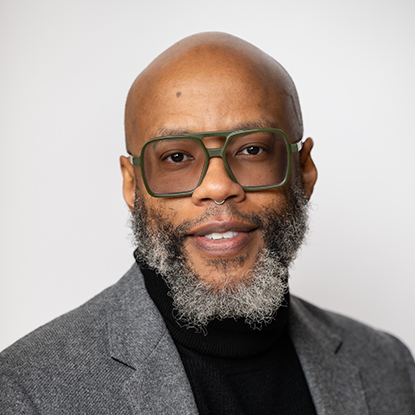Jeffrey Omari is a legal anthropologist and Assistant Professor at Gonzaga University School of Law. His research ––which merges ethnographic fieldwork and anthropological theory with doctrinal analysis–– sits at the intersection of law, technology, and social science. In addition to his work on internet governance in Brazil, Omari’s research also explores digital rights in our current age of misinformation.
Omari sits on the Board of Trustees for the Law and Society Association (Class of 2023) and the editorial board of Political and Legal Anthropology Review (POLAR). Among other outlets, his writing has appeared in Law and Social Inquiry, POLAR, Michigan Law Review, Saint Louis University Law Journal, and Colorado Technology Law Journal.
Omari was the inaugural Visiting Assistant Professor in the Center for Civil and Human Rights at Gonzaga University School of Law. He was also a Law and Social Science Doctoral Fellow at the American Bar Foundation. He holds a Ph.D. in cultural anthropology from the University of California, Santa Cruz, a Juris Doctor from the University of Illinois College of Law, and a Bachelor of Arts from Morehouse College. Before pursuing his Ph.D., he worked as a licensing consultant in the music legal affairs department of Metro-Goldwyn-Mayer Studios, Inc.
Academic Publications
Civil Rights in Times of Uncertainty (The Anthropocene). Michigan Law Review (invited symposium foreword) (2022).
Chronicles of Internet Openness: The Brazilian Case Study. Colorado Technology Law Journal (2022).
Taking Aim at “Fake News”: Brazil’s Legislative Agenda for Online Democracy. Saint Louis University Law Journal (invited symposium essay) (2021).
Is Facebook the Internet? Ethnographic Perspectives on Open Internet Governance in Brazil. Law & Social Inquiry, 45(4): 1093-1112 (2020).
Digital Access Amongst the Marginalized: Democracy and Internet Governance in Rio de Janeiro. PoLAR: Political and Legal Anthropology Review 41(2): 277-289 (2018).
Copyright: From Historical Roots to Regulating the Contemporary Complexities of Human Creativity. Review of Copyright Wars: Three Centuries of Transatlantic Battle by Peter Baldwin and Copyright Africa: How Intellectual Property, Media and Markets Transform Immaterial Cultural Goods by Ute Röschenthaler and Mamadou Diawara (Eds). PoLAR: Political and Legal Anthropology Review (online only) (2018).
Mix and Mash: The Digital Sampling of Music has Stretched the Meaning of the Fair Use Defense, Los Angeles Lawyer (September), 33: 35-41 (2018).
Other Publications
Undercutting Internet Governance in Brazil: The “Fake News Bill” and its Impact on Rights and Equality, VerfBlog, July 19, https://verfassungsblog.de/undercutting-internetgovernance-in-brazil/ (2020).
Postscript to “Digital Access Amongst the Marginalized: Democracy and Internet Governance in Rio de Janeiro,” PoLAR: Political and Legal Anthropology Review, March 16, https://polarjournal.org/2020/03/16/2020-virtual-edition-on-digital-politics-jeffreyomari/ (2020).
Seeing Red: A professor coexists with ‘MAGA’ in the classroom, ABA Journal, July 3, http://www.abajournal.com/voice/article/coexisting-with-maga-in-the-classroom (2019).
Democracy Through Technology (Three-part series on digital access in Rio de Janeiro), Rio on Watch, http://www.rioonwatch.org/?writer=jeffrey-omari (2015).

